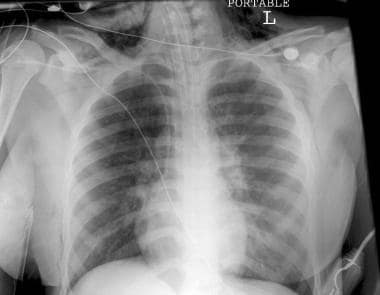Initial Assessment
When a patient with bulimia nervosa is seen in an emergency situation, it is important to address the potential for other risk-taking behaviors. The patient should be interviewed away from friends or family, and suicide risk should be specifically assessed. [1, 2, 3, 4]
Potential life-threatening toxic ingestions should also be addressed. Toxicity from ingestion of substances such as ipecac has been associated with severe cardiac disease.
Acute pancreatitis should be considered. The ability to recognize acute pancreatitis may be impaired because of the assumption that an elevated amylase level is due to vomiting. Serum lipase levels should be obtained or computed tomography (CT) considered if epigastric tenderness is significant.
Treatment & Management
Emergency department care
Comprehensive recommendations for the management of bulimia nervosa have been provided by the American Psychiatric Association (APA) in Practice Guidelines for the Treatment of Patients With Eating Disorders, Third Edition.
It is the position of the American Dietetic Association that nutrition intervention, including nutritional counseling by a registered dietitian (RD), is an essential component of team treatment of patients with anorexia nervosa, bulimia nervosa, and other eating disorders (EDs) during assessment and treatment across the continuum of care. [5]
Complications of bulimia that are treatable in the emergency setting may include volume depletion, electrolyte abnormalities, esophagitis, Mallory-Weiss tear, esophageal or gastric rupture (see the image below), pancreatitis, arrhythmia, [6] and adverse effects of medications (eg, ipecac or appetite suppressants).
 Chest radiograph demonstrates pneumomediastinum, which can occur in association with esophageal rupture from forceful vomiting.
Chest radiograph demonstrates pneumomediastinum, which can occur in association with esophageal rupture from forceful vomiting.
Associated illnesses, including depression, anxiety disorders, and substance abuse, increase the risk of other illness and injury [7] —hence the recommendation to question patients directly regarding suicidal ideation.
Patients should be warned against the use of diet pills and amphetamines, as well as energy pills and diet teas that claim to be all-natural. All-natural supplements often contain herbal forms of caffeine and ephedrine and have been associated with hypertension and cerebrovascular accident.
As new therapies to treat bulimia are introduced, their potential adverse effects must be taken into account. Such adverse effects may include nephrolithiasis, glaucoma, seizure, and metabolic derangement.
Patients with eating disorders who are seen for an apparently unrelated problem benefit from being seen by an emergency physician who can promptly recognize an eating disorder and can provide appropriate initial management and suitable referral. Diagnostic criteria have been published by the APA. [8]
Psychiatric and medical consultation
For patients who are unable to halt the dangerous sequence of dieting, binging, and purging, admission to a psychiatric unit may be necessary to break the cycle. [9] Psychiatric hospitalization may also be necessary for patients who have severe depression and suicidal ideation, experience a greater than 30% weight loss over 3 months, fail to maintain an outpatient weight contract, or are involved in a family crisis. [10]
Admission to a medical facility is warranted for patients with significant electrolyte or metabolic disturbance or another physical complication of binging or purging (eg, Mallory-Weiss tear, esophageal rupture, or pancreatitis).
All patients suspected of having an eating disorder should be referred to a psychiatrist for further evaluation. If possible, arrangements should be made for follow-up within 2 days.
-
Chest radiograph demonstrates pneumomediastinum, which can occur in association with esophageal rupture from forceful vomiting.





